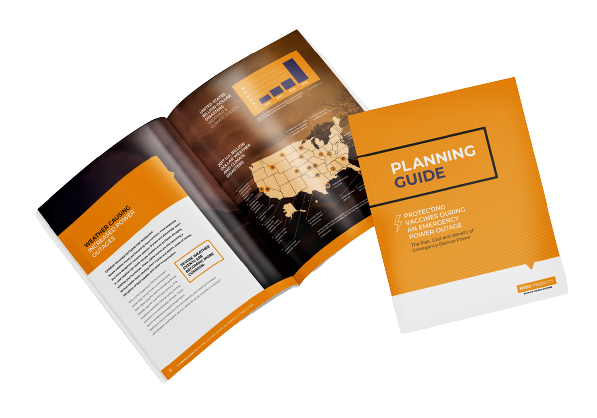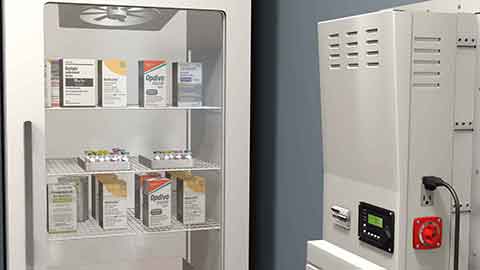What Is a Vaccine Coordinator?
A vaccine coordinator is a member of staff designated to ensure proper vaccine storage and handling. Additionally, the Vaccine For Children (VFC) program requires that facilities have a primary and backup coordinator in case the primary coordinator is unavailable during a crisis (especially during after-hours). However, both of them should do as much as possible to be onsite at all times and must be fully trained to implement routine and emergency vaccine management plans.
This article discusses all you need to know about designating a vaccine coordinator for your facility and the practices for Standard operating procedures (SOPs) and staff training.
Who is the Designated Vaccine Coordinator?
According to the Center for Disease Control (CDC), having staff that is well trained in general storage and handling principles and managing overall benefits and risks to ensure both vaccine and patient safety.
In most facilities, the vaccine coordinator is a medical assistant. However, some facilities may designate a licensed vocational nurse (LVN), a registered nurse (RN), or an office manager/administrator. No matter the option you choose, it is best that you report the names and contact information of both coordinators to the VFC program through MyVFCVaccines.org.
Responsibilities of a Vaccine Coordinator
The responsibilities of a vaccine coordinator include but are not limited to the following:
Vaccine inventory
- Perform a regular physical inventory of all vaccines in stock
- Order vaccines when necessary, ensuring an adequate vaccine stock - no under or overstocking of vaccines
- Process and document vaccine inventory information
- Ensure that the cold chain was not compromised while the vaccine was in transit.
- If you are a VFC provider, the coordinator must label your private stock separately from your VFC vaccines.
- Take count of vaccine inventory at least once a month
- Ensure the current Vaccine Information Statement is being used
Vaccine Storage and Handling
- Ensure the vaccines are stored and labelled in appropriate storage units following CDC guidelines and with proper storage space.
- Organize vaccines properly and inspect them daily.
- Rotate stock weekly, especially when fresh inventory arrives, so that the vaccines closest to their expiration dates will be used first.
- Remove expired vaccines from storage units promptly to avoid accidental administration to patients.
- Work with your program manager to transfer vaccines that are either close to expiration or have expired.
- Safeguard all documentation regarding storing vaccine and temperature logs
- Organize vaccine storage and handling training and ensure that all staff members complete the training.
- Monitor the operation of vaccine storage equipment and systems and ensure correct vaccine storage temperatures.
- When necessary, ensure that vaccine transport obeys standard operating procedures' requirements.
- Oversee emergency preparations when necessary per SOP requirements.
Your Responsibility as A Facility Owner/Operator
While the presence of a vaccine coordinator is integral to the smooth running of your vaccine program, you also have responsibilities as the facility administrator or owner. Therefore, the CDC recommends that you provide training for all staff members handling or distributing vaccines. In addition, the training should familiarize staff with vaccine-related practices and your facility's storage and handling of SOPs.
The CDC’s You Call the Shots: Vaccine Storage and Handling is a free, online training module focused on storage and handling requirements. This training is an excellent option to start with. Additionally, if you are a VFC provider or purchase some of your vaccines with public funds, your vaccine program will have specific state requirements for training, policies, and procedures. Therefore, it would be best to contact them.
Additionally, the CDC recommends that facilities develop and maintain clearly written, detailed and up-to-date storage and handling procedures. They will help your facility stay organized and be a reference tool for your training sessions. In addition, the CDC provides guidance for equipment malfunctions, power failures or natural disasters.
It is best that you keep written SOPs near vaccine storage units (like refrigerators, freezers and combination units) and highly visible. Furthermore, ensure that there is adequate documentation of all staff training, complete with dates and the names of participants. Moreover, your training sessions should have the following schedule:
- When new staff is on-boarded and as part of employee orientation
- Annually as a refresher for all staff involved in vaccine storage and handling activities
- Whenever new vaccines are added to the inventory
- Whenever recommendations for storage and handling of vaccines are updated.
- Track inclement weather conditions and ensure appropriate handling of vaccines during a weather crisis or power outage.
The National Oceanic and Atmospheric Administration (NOAA) provides up-to-date information on U.S. weather conditions, and the vaccine coordinator should be on top of the situation at all times.
Steps for Protecting Vaccines due to Power Outages
While the importance of temperature monitoring cannot be understated, once the power goes out, the clock starts and temperatures begin to rise.
Battery backup systems offer instant and automatic power for both medical equipment and laboratory appliances alike. As a result, no staff needs to be on-site to keep track of or start the generator, plus, valuable samples and inventory will remain safe—with no extra work required. This makes them an ideal solution for a vaccine coordinator looking to ensure inventory remains safe.
Additionally, their vertical, cabinet-like design and leak-proof batteries mean they can be installed in even the tightest spaces and oriented in anyway to make them fit. Meaning now matter how crowded your vaccine or sample room is, you can ensure you'll be protected.
Plus, if your lab or storage room is truly tight on space, a hardwired backup power unit can instantly supply remote power to your appliance—directly via the outlet its already plugged into.
Regardless of what kind of system is the best fit, they ensure that your entire stock of biomedical and chemical samples are protected from a sudden loss of power (and the resulting temperature fluctuations) by guaranteeing a seamless transition from utility power to backup power.
Even better, is that battery generators can be outfitted with as much power as you want. So system’s can be designed with enough power to protect a facility’s inventory:
- Overnight
- All day
- Over a weekend
- Or even for a whole week.
So, to protect your facility from tens of thousands of dollars in lost inventory speak to a Medi-Products battery backup expert.
They’ll help design you a system that both meets your power needs and will fit inside your facility—for a much lower cost than what your vaccines are worth. So a backup power system pays for itself the first time your power goes out.
Designing a system for you is as easy as taking a picture of your appliance’s nameplate, and a photo of the room where it’s in.
Then, you just email both photos to our Product experts, and we’ll provide you with multiple options for backup power protection.
For more information contact: 1.800.7653237



